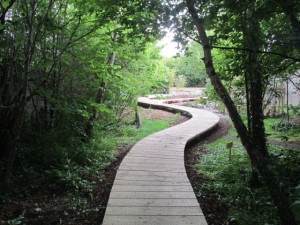In a world where stress is cited as one of the greatest occupational hazards, mindfulness based practices are invaluable for adults and children alike… Inviting mindfulness into the daily lives of children increases their capacity to become still and feel good about themselves. Mindfulness based practices are simple yet profound and create a solid foundation on which to build self-worth, compassion and understanding.
As part of our recent Wellbeing Week most classes sampled the practice of mindfulness and we intend to continue the practice with our Mindfulness Monday initiative. Mindfulness is becoming a highly recommended practice for children and adults, and many of our staff members have completed courses in mindfulness and are aware of its connection to wellbeing. Mindfulness for schools is associated with the SPHE programme, specifically the strands of Myself and Self-Identity. It is claimed that mindfulness practice has been shown to enhance physical, mental and emotional wellbeing and improve concentration. There are a number of websites dedicated to mindfulness in schools, including www.mindfulnessmatters.ie and www.mindfulnessinschools.org.
According to mindfulnessinschools.org, mindfulness differs from some other forms of meditation as instead of encouraging a person to clear their minds, it asks them to concentrate on their thoughts and focus on what surrounds them without allowing themselves to get distracted.
Professor of Clinical Psychology at the Oxford Mindfulness Centre, Mark Williams, says that using mindfulness to become more aware of what’s going on around us can help to alleviate the “tunnel-vision” we develop when bustling between daily activities. ‘Mindfulness offers us the chance to take a moment to acknowledge and appreciate each sensation, feeling and emotion that affects us and respond appropriately to them. By doing this, we can move forwards with a greater understanding of ourselves and the world around us.’
In 2012 an academic study was conducted by Katherine Weare, emeritus professor at Exeter and Southampton universities. Looking at the impact of mindfulness on children and young people, the study found that mindfulness helps to develop cognitive and performance skills. In turn, this then leads to children becoming more focused in the classroom and paying closer attention to their studies. (www.mindfulnessinschools.org).
Mindfulness can be a simple technique that only takes a second. Some classroom activities promoted at the teacher training on mindfulness include asking children to take out their copies mindfully, write mindfully, colour mindfully or sit mindfully. In this way they are more fully present to the activity and therefore more focused and able to learn. A mindfulness posture can set the scene for listening; being ‘alert yet relaxed’. Children may be asked to focus on their breathing. Focus on breathing and body awareness is an integral part of mindfulness, again helping us become more aware, more present.
Mindfulness can be used for all kinds of situations and with different intentions. Children can be asked to take a silent moment to listen to the sounds around them, they can be asked to become aware of the pictures and personal stories in their mind, focusing on times when they were resourceful, confident or pleased with themselves. They can then re-create this in the present. When a child is anxious, stressed or ‘in a bad place’ they can be asked to become aware of it and then think of a favourite piece of music, let it play in the mind, and see how they feel afterwards. Visualisations can help children to let go of stressful thoughts or experiences, or they can write their stressors out, crumple them up and dump them. Children can go on mindfulness walks, being aware of what they experience through their senses as they walk.
Parents who are interested in exploring this area in more detail might like to check out www.mindfulnessmatters.ie for more information and a range of Irish resources, podcasts, etc. on the topic of mindfulness.
I asked some children in 5th class for their thoughts on mindfulness.
Mindfulness makes the rest of my day more relaxed.
It clears my mind from my worries.
If you’re really stuck at something, like in maths, a quick 10 second mindfulness break is really good.
It gets down stress.
It makes you feel like a better person.
Mindfulness colouring helps you get your mind working at the start of the day.



Recent Comments